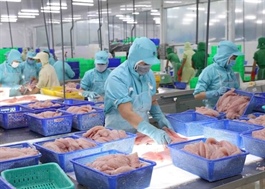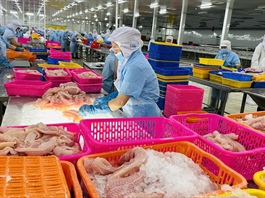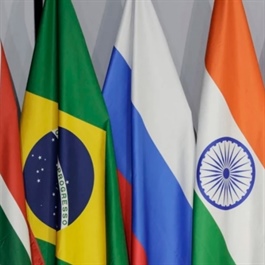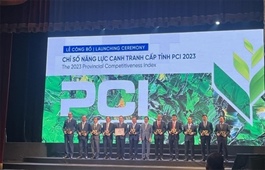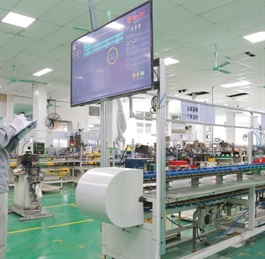Economic experts mull over best way to aid growth
Economic experts mull over best way to aid growth
Financial experts are weighing up the best options for Vietnam to support the country's still nascent economic growth and ensure financial market stability.

Vietnam continued its bumpy path of recovery in April, reflecting the highly uncertain global environment, according to Yun Liu, ASEAN economist at HSBC Global Research. Encouragingly, exports rose 10.6 per cent on-year, driven by electronics, which grew 20 per cent on-year.
However, peripheral risks are keeping near-term sentiment cautious despite growing confidence of a cyclical recovery in the global trade cycle.
"Some exporters have noted concerns stemming from the Red Sea disruptions of trade with Europe. Unsurprisingly, textiles and footwear exports, for which Europe is a major destination, stalled in its recovery, falling almost 3 per cent on-year," said Liu.
Despite this, the economist assumes that an expansion of Vietnam’s manufacturing capabilities through robust foreign direct investment (FDI) inflows should provide a further tailwind to a stronger cyclical rebound as the broader trade cycle picks up.
New FDI to the manufacturing sector rose 50 per cent on-year, while FDI disbursements also rallied to a multi-year-high, exceeding $6 billion in the first four months.
Liu noted that inflation appears an imminent concern as headline inflation rose 0.1 per cent on-month, pushing the on-year ratio to 4.4 per cent, in line with market forecasts. This marks the first time in more than 18 months that inflation has been so close to the State Bank of Vietnam's (SBV) 4.5 per cent inflation ceiling.
Similar to previous episodes, the main drivers are higher oil prices and food inflation. "The former reminds us of how acutely sensitive Vietnam is to the volatility in the international commodity market, whereas the latter suggests that even an exporter like Vietnam cannot be insulated from high food costs," said Liu.
Coupled with the latest downward pressure on the VND, there are concerns this could prompt the SBV to hike interest rates.
"We expect inflation to breach the 4.5 per cent ceiling in the second quarter of this year, before likely dropping below 4 per cent on-year in the third. Moreover, a rate hike in the face of still-subdued credit growth would be negative for the nascent economic growth, so we do not expect the SBV to move," Liu said.
In fact, banking sector deposit rates recorded a slight upward trend again in April, particularly in the second half of the month. Specifically, a number of commercial lenders such as VPB, VIB, OCB, and STB hiked their interest rates in the range from 0.2-0.5 per cent annually for both short- and long-term.
Several state lenders such as VietinBank and BIDV also adjusted to increase interest rates by 0.2 per cent yearly for terms under 12 months.
However, deposit interest rates are still at their lowest level for many years, and the rates of some state lenders for long terms are also listed at a lower level than the group of joint-stock banks from 0.2 to 1 per cent annually.
Can Van Luc, chief economist at BIDV, assumes that the SBV will continue to relax the monetary policy in 2024 due to a combination of factors.
"First, the world economy continues to face many challenges. Global inflation is forecast to continue its downward trend and domestic inflation remains under control, below 4 per cent. Second, major central banks worldwide are expected to ease monetary policy tightening through lowering operating interest rates, and lastly, the government and SBV will continue to prioritise economic growth goals," said Luc.
Luc expects that the VND interest rates will enter a somewhat more stable period in 2024 and the interest rates in general will remain at a low level, and increase slightly from 0.2 to 0.5 per cent in the second half of the year when credit demand recovers more strongly.










